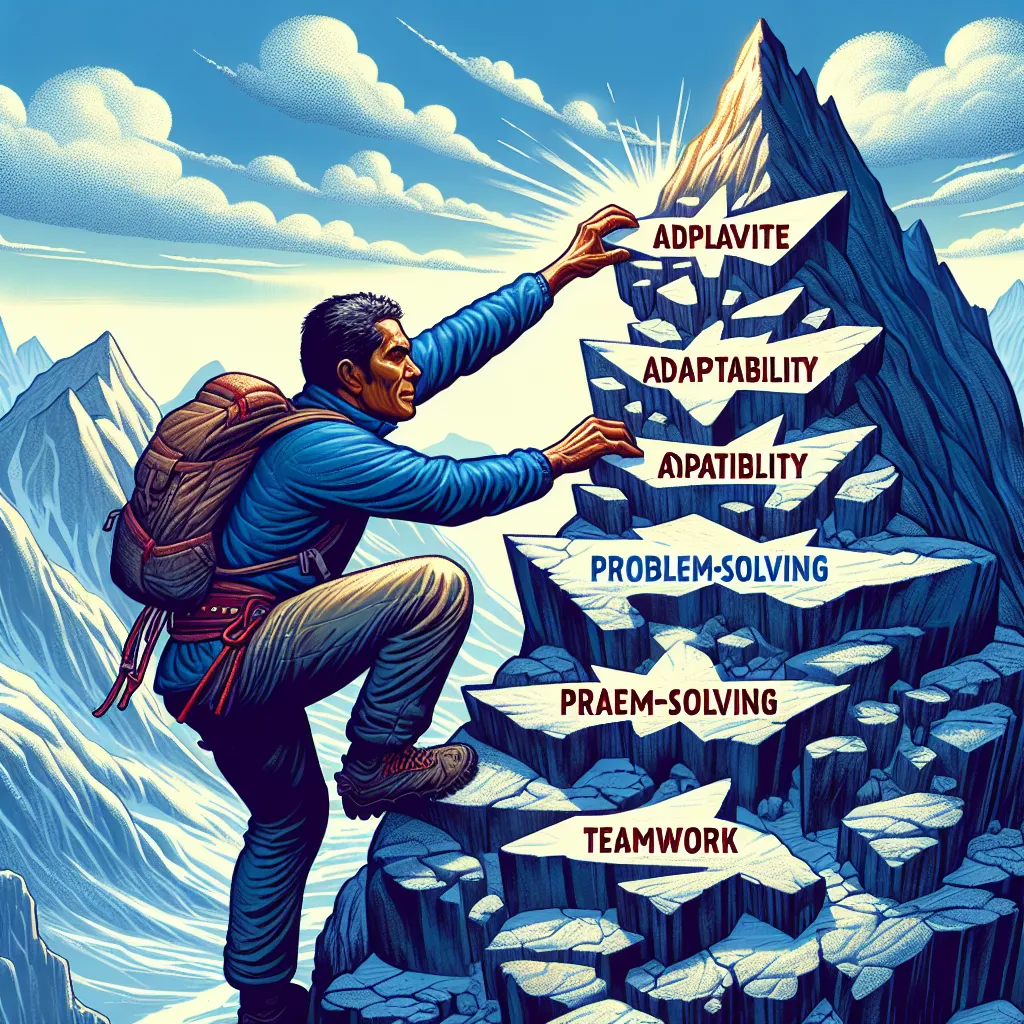In today’s competitive job market, knowing how to effectively communicate your strengths during an interview is crucial. This skill becomes even more important when you need to demonstrate how these strengths apply directly to the role you’re seeking. This guide will help you navigate this essential aspect of job interviews, providing you with strategies to showcase your abilities and align them with the position’s requirements.
Understanding the Importance of Discussing Your Strengths
Before diving into the specifics of how to talk about your strengths, it’s essential to understand why this topic is so critical in job interviews. Employers ask about your strengths to:
- Assess your self-awareness
- Determine if you have the skills necessary for the role
- Evaluate how well you can articulate your value to the company
By effectively communicating your strengths and their relevance to the position, you demonstrate that you’re not only qualified but also a good fit for the organization.
 Discussing strengths in interview
Discussing strengths in interview
Identifying Your Key Strengths
Before your interview, take time to reflect on and identify your key strengths. Consider:
- Technical skills specific to your field
- Soft skills that make you an effective employee
- Personal qualities that contribute to your work performance
To help you in this process, ask yourself:
- What tasks do you excel at in your current or previous roles?
- What positive feedback have you received from colleagues or superiors?
- What accomplishments are you most proud of in your career?
Remember, your strengths should be relevant to the job you’re applying for. Review the job description carefully and align your strengths with the requirements listed.
Crafting Your Strength Statements
When discussing your strengths, it’s important to be specific and provide concrete examples. Use the STAR method (Situation, Task, Action, Result) to structure your responses. Here’s a template you can follow:
“One of my key strengths is [strength]. In my previous role at [company], I was tasked with [specific situation]. To address this, I [action you took]. As a result, [positive outcome]. I believe this strength would be valuable in this role because [reason relevant to the new position].”
For example:
“One of my key strengths is my ability to streamline processes for increased efficiency. In my previous role at XYZ Corp, I was tasked with improving our customer service response times. To address this, I implemented a new ticketing system and trained the team on prioritization techniques. As a result, we reduced our average response time by 40% and increased customer satisfaction ratings by 25%. I believe this strength would be valuable in this role because you mentioned a focus on improving operational efficiency in the job description.”
Common Interview Questions About Strengths and How to Answer Them
Here are some typical questions you might encounter about your strengths, along with strategies to answer them effectively:
1. “What is your greatest strength?”
Strategy: Choose a strength that’s directly relevant to the job. Provide a specific example of how you’ve used this strength to achieve results.
Example Answer: “My greatest strength is my ability to lead and motivate teams. In my previous role as a project manager, I led a team of 10 people on a high-priority project. By implementing regular check-ins, fostering open communication, and recognizing individual contributions, we completed the project two weeks ahead of schedule and 10% under budget. This leadership skill would be particularly valuable in this role, as I understand you’re looking for someone to head up new initiatives.”
2. “How would your colleagues describe your strengths?”
Strategy: This question assesses your self-awareness and interpersonal skills. Use feedback you’ve actually received from colleagues.
Example Answer: “My colleagues often comment on my problem-solving abilities. They’ve described me as someone who remains calm under pressure and can think creatively to find solutions. For instance, when our team faced a sudden change in client requirements, my coworkers appreciated how I quickly organized a brainstorming session and guided us to a new approach that satisfied the client and kept the project on track.”
3. “Which of your strengths do you think is most relevant to this position?”
Strategy: Carefully align your strength with the job requirements. Show that you’ve done your research on the role and company.
Example Answer: “Based on the job description and our discussion about the challenges of this role, I believe my strength in data analysis would be most relevant. In my current position, I’ve used advanced Excel and SQL skills to analyze large datasets and provide actionable insights that have increased our department’s efficiency by 30%. Given that this role involves optimizing marketing strategies based on customer data, I’m confident this strength would allow me to make significant contributions to your team.”
4. “Can you give an example of how you’ve used your strengths to overcome a challenge?”
Strategy: Use the STAR method to provide a detailed, relevant example.
Example Answer: “One of my key strengths is adaptability. Last year, our company underwent a major software transition that affected all departments. The situation was challenging as we had to learn the new system while maintaining our regular workload. I took the initiative to become an early adopter, quickly learning the system and then creating a series of training documents for my team. As a result, our department had the smoothest transition in the company, with minimal disruption to our productivity. This adaptability would be beneficial in this role, especially given the fast-paced nature of your industry.”
 Overcoming challenges with strengths
Overcoming challenges with strengths
Tips for Discussing Strengths You’re Still Developing
It’s important to be honest during interviews. If asked about a strength that you’re still developing, consider these tips:
- Acknowledge the area for improvement
- Highlight your willingness to learn and grow
- Describe steps you’re taking to develop this strength
Example: “While I’m still developing my public speaking skills, I recognize their importance in this role. I’ve joined a local Toastmasters group and have been actively seeking opportunities to present at team meetings. I’m committed to continuous improvement and would welcome the chance to further develop this skill in this position.”
Common Mistakes When Discussing Strengths
Avoid these pitfalls when talking about your strengths:
- Being too modest: While you don’t want to brag, this is the time to confidently articulate your value.
- Being too general: Vague statements like “I’m a hard worker” aren’t as impactful as specific examples.
- Not relating strengths to the job: Always connect your strengths back to the requirements of the role.
- Listing too many strengths: Focus on 2-3 key strengths that are most relevant to the position.
- Not providing evidence: Always back up your claims with concrete examples or achievements.
Follow-up Questions and How to Answer Them
Interviewers often ask follow-up questions to dig deeper into your strengths. Here are some examples with suggested answers:
-
Q: “How have you applied that strength in your current role?”
A: Provide a recent, specific example that showcases the impact of your strength. -
Q: “How do you plan to further develop that strength?”
A: Discuss any courses, workshops, or experiences you’re pursuing to enhance this skill. -
Q: “Can you think of a time when that strength became a weakness?”
A: Be honest about any challenges, but focus on how you’ve learned to balance or manage this trait. -
Q: “How would you use that strength in the first 90 days of this job?”
A: Outline a brief plan that demonstrates your understanding of the role and how you’d contribute. -
Q: “How do you ensure your strengths complement those of your team members?”
A: Discuss your collaborative approach and how you adapt your strengths to work effectively with others.
Conclusion
Effectively communicating your strengths and their relevance to the role you’re applying for is a crucial skill in job interviews. By identifying your key strengths, preparing specific examples, and connecting them directly to the job requirements, you’ll be well-equipped to impress potential employers. Remember to be honest, confident, and always relate your strengths back to the value you can bring to the organization.
To further enhance your interview skills, you might find these related articles helpful:
- How to Answer Questions About Leadership in English
- How to Talk About Your Teamwork Skills in an Interview
- How to Discuss Your Analytical Skills in an Interview
Practice these techniques, and you’ll be well on your way to acing your next job interview. Good luck!




